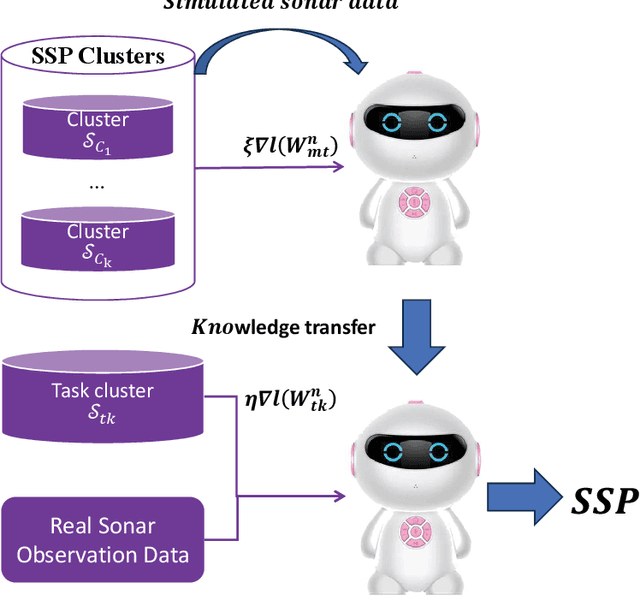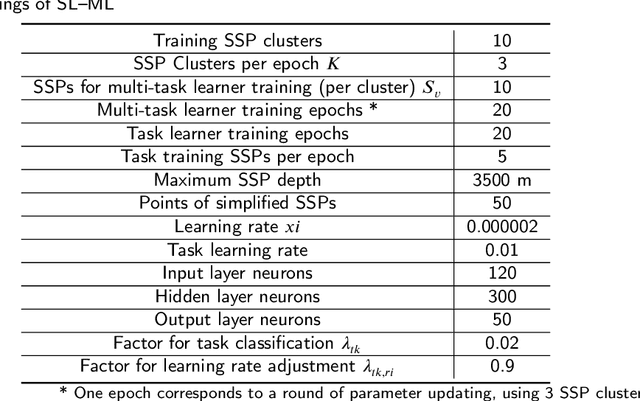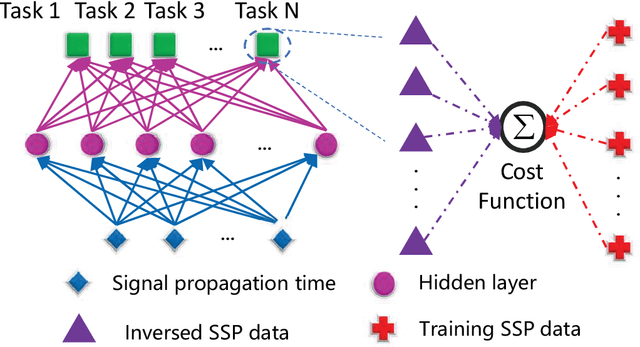Experimental Results of Underwater Sound Speed Profile Inversion by Few-shot Multi-task Learning
Paper and Code
Oct 18, 2023



Underwater Sound Speed Profile (SSP) distribution has great influence on the propagation mode of acoustic signal, thus the fast and accurate estimation of SSP is of great importance in building underwater observation systems. The state-of-the-art SSP inversion methods include frameworks of matched field processing (MFP), compressive sensing (CS), and feedforeward neural networks (FNN), among which the FNN shows better real-time performance while maintain the same level of accuracy. However, the training of FNN needs quite a lot historical SSP samples, which is diffcult to be satisfied in many ocean areas. This situation is called few-shot learning. To tackle this issue, we propose a multi-task learning (MTL) model with partial parameter sharing among different traning tasks. By MTL, common features could be extracted, thus accelerating the learning process on given tasks, and reducing the demand for reference samples, so as to enhance the generalization ability in few-shot learning. To verify the feasibility and effectiveness of MTL, a deep-ocean experiment was held in April 2023 at the South China Sea. Results shows that MTL outperforms the state-of-the-art methods in terms of accuracy for SSP inversion, while inherits the real-time advantage of FNN during the inversion stage.
 Add to Chrome
Add to Chrome Add to Firefox
Add to Firefox Add to Edge
Add to Edge